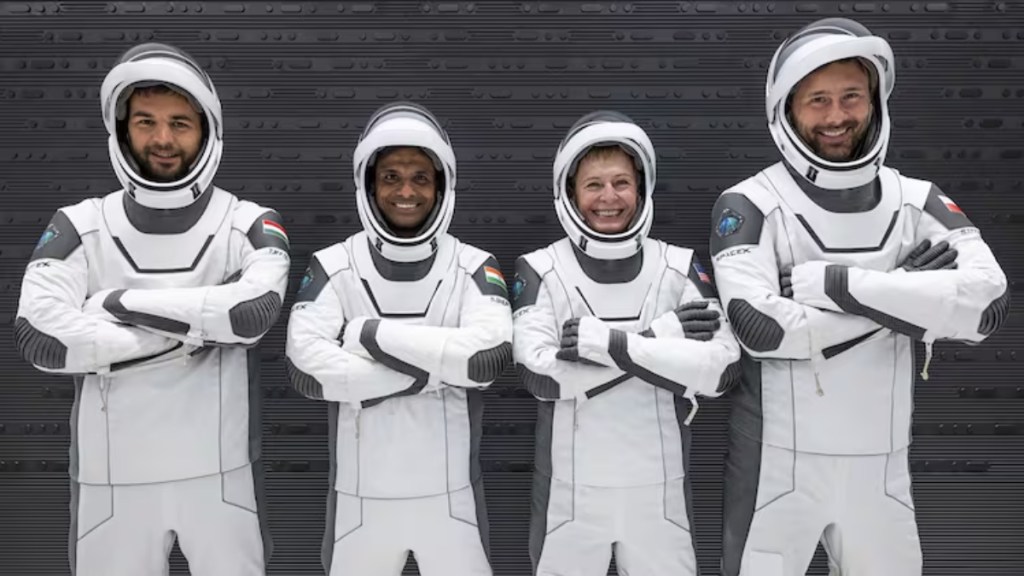The Axiom-4 commercial mission to the International Space Station, carrying Indian astronaut Shubhanshu Shukla and three others, is now scheduled to launch on June 19, ISRO confirmed on Saturday. Originally set for June 11, the launch faced delays first due to a fuel leak in SpaceX’s Falcon-9 rocket, and later because of a leak detected in the Russian segment of the ISS. The mission, operated by Axiom Space and launching from NASA’s Kennedy Space Center in Florida, marks a significant milestone in India’s expanding space collaboration and Shukla’s participation underscores the country’s growing presence in international human spaceflight efforts.
After delay, Axiom-4 Mission with Indian Astronaut Shubhanshu Shukla set to launch on June 19
Axiom Space is now targeting June 19, 2025, for the launch of its Ax-4 mission from NASA’s Kennedy Space Center in Florida. The mission was initially slated for May 29 but faced a series of delays due to technical issues, including those on the Falcon-9 rocket.
Written by FE News Desk
Updated:

This article was first uploaded on June fourteen, twenty twenty-five, at nineteen minutes past twelve in the night.